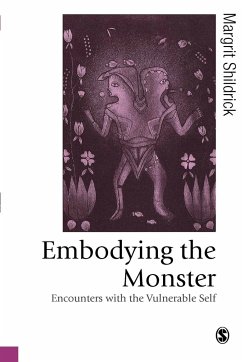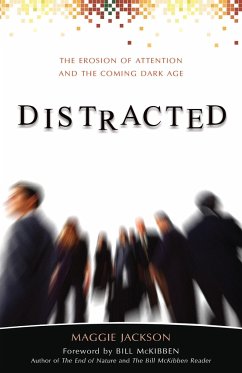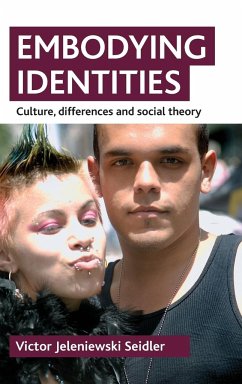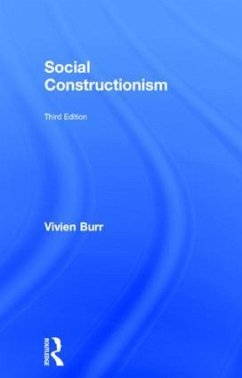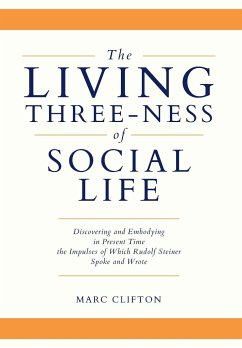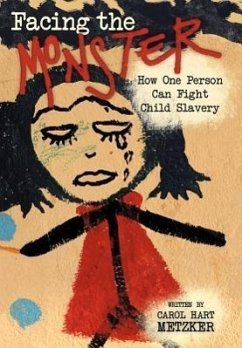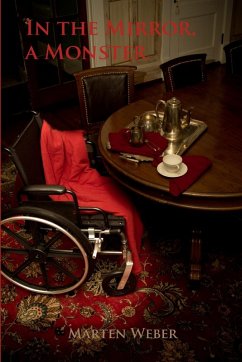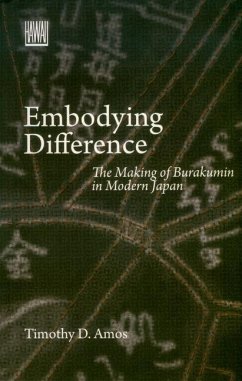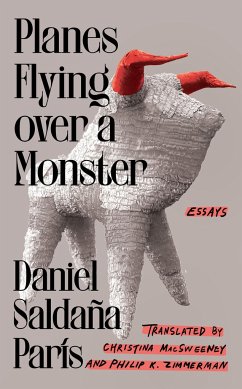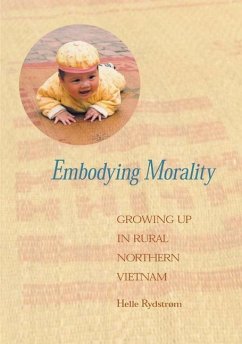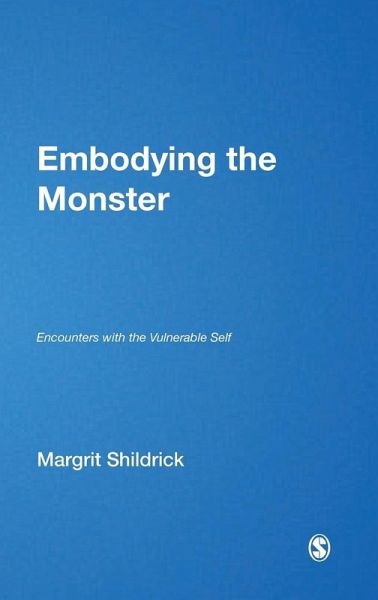
Embodying the Monster
Encounters with the Vulnerable Self
Versandkostenfrei!
Versandfertig in 1-2 Wochen
218,99 €
inkl. MwSt.
Weitere Ausgaben:

PAYBACK Punkte
109 °P sammeln!
'(A) consistently interesting and provocative work, which offers a great deal in seven chapters. It marks an innovative interdisciplinary approach to questions of embodiment and subjectivity' - Disability and Society 'This is an elegantly written book which has, as its main aim, to rethink the idea of difference in the western imaginary through a consideration of two themes: monsters and how these have come to define, but potentially to deconstruct, normality; and the whole idea of vulnerability and the vulnerable and the extent to which such a state is one that all of us are constantly in dan...
'(A) consistently interesting and provocative work, which offers a great deal in seven chapters. It marks an innovative interdisciplinary approach to questions of embodiment and subjectivity' - Disability and Society 'This is an elegantly written book which has, as its main aim, to rethink the idea of difference in the western imaginary through a consideration of two themes: monsters and how these have come to define, but potentially to deconstruct, normality; and the whole idea of vulnerability and the vulnerable and the extent to which such a state is one that all of us are constantly in danger of entering ... The theoretical and philosophical content - Derrida, Lacan, Foucault, Irrigaray, Butler, Levinas, and Haraway in particular - together with the range of empirical examples used to illustrate the arguments, make the book an ideal one for third level undergraduates and for post-graduates, particularly those studying the sociology of embodiment, feminist theory, critical theory and cultural studies. Shildrick accomplishes the task of making difficult ideas comprehensible without reducing them to the simplistic' - Sociology Written by one of the most distinguished commentators in the field, this book asks why we see some bodies as `monstrous' or `vulnerable' and examines what this tells us about ideas of bodily `normality' and bodily perfection. Drawing on feminist theories of the body, biomedical discourse and historical data, Margrit Shildrick argues that the response to the monstrous body has always been ambivalent. In trying to organize it out of the discourses of normality, we point to the impossibility of realizing a fully developed, invulnerable self. She calls upon us to rethink the monstrous, not as an abnormal category, but as a condition of attractivenes, and demonstrates how this involves an exploration of relationships between bodies and embodied selves, and a revising of the phenomenology of the body.





